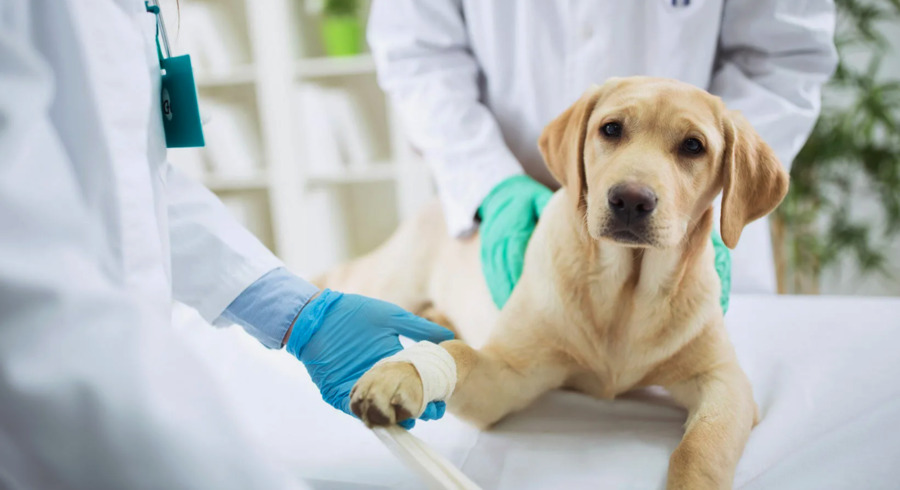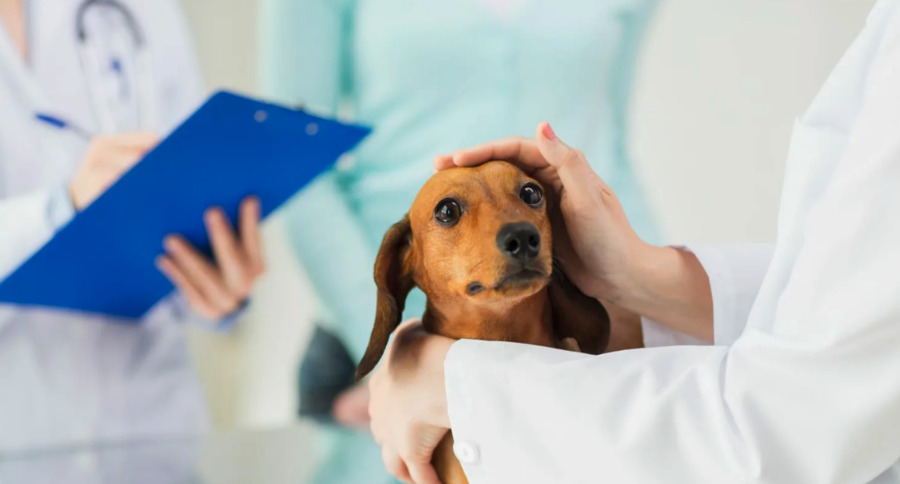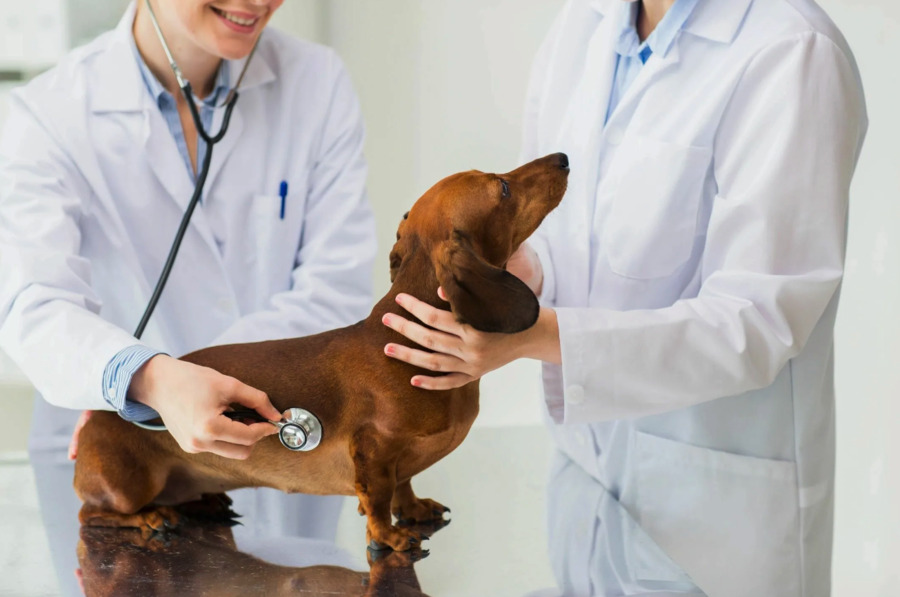What is Medical Diagnosis?
Medical diagnosis in the veterinary context involves a systematic approach to identifying and determining the nature of diseases affecting animals. This process begins with a detailed evaluation of the animal’s symptoms and signs, incorporating both the pet owner’s observations and the veterinarian’s expertise. By carefully analyzing these inputs, veterinarians can formulate a hypothesis about the potential illness, which is further refined through subsequent diagnostic tests. This rigorous approach ensures that each pet receives an accurate diagnosis, which is crucial for the effective management of any medical condition.
Purpose of Medical Diagnosis in Animals
The overarching goal of medical diagnosis in veterinary medicine is to accurately identify diseases so that appropriate therapeutic strategies can be applied. This is crucial not only for the treatment of individual animals but also for preventing disease transmission to other pets and humans, especially in the case of zoonotic diseases. Timely and precise diagnosis helps in mitigating the progression of diseases, thereby improving the prognosis and quality of life for pets, which is the primary concern for both pet owners and veterinary professionals.
General Clinical Diagnosis in Veterinary Medicine

Examination
The physical examination is the veterinarian’s first tool in the diagnostic process. It involves a thorough inspection of the animal’s body using sight, smell, and touch to assess general physical condition and detect any abnormalities. Veterinarians look for signs such as coat quality, body conditioning, abnormal discharges, or behavior that might indicate illness. This initial assessment helps to direct more focused examinations and decide on further diagnostic tests.
Palpation
Palpation is a diagnostic technique where the veterinarian uses their hands to feel the animal’s body to check for irregularities such as lumps, swelling, or pain. This method provides valuable information about the condition of the muscles, skin, abdomen, and other body parts. Palpation can help identify abnormalities in the texture, size, shape, and consistency of internal organs, which are critical for diagnosing conditions that may not be visible through external examination alone.
Percussion
Percussion is a diagnostic technique used to assess the size and density of internal organs by tapping on the body surface and evaluating the sound qualities that are produced. This method can help detect the presence of abnormal fluid accumulations or changes in organ size, which are often indicative of various health issues, including heart failure, tumors, or accumulations of fluid in the abdominal or thoracic cavities.
Auscultation
Auscultation involves listening to the sounds produced within the animal’s body, particularly from the heart, lungs, and abdominal area, using a stethoscope. This technique is essential for diagnosing conditions affecting the respiratory and cardiovascular systems, such as pneumonia, bronchitis, or heart murmurs. It can also help detect irregularities in the gastrointestinal system, such as fluid or gas buildup.
Specialized Clinical Diagnosis of Animals
Radiology
Radiology is an indispensable diagnostic tool in veterinary medicine that involves the use of X-rays to visualize the internal structures of an animal’s body. It is particularly useful for diagnosing bone fractures, joint abnormalities, and certain chest and abdominal conditions. Radiology can reveal the presence, size, and shape of tumors, heart enlargement, lung congestion, and foreign objects within the body.
Ultrasound
Ultrasound is a non-invasive imaging technique that uses high-frequency sound waves to create detailed images of the internal organs. It is highly effective for examining conditions related to the heart, liver, kidneys, and reproductive organs. Ultrasound can detect abnormalities such as cysts, tumors, and fluid accumulation, providing a valuable tool for diagnosing soft tissue diseases.

Laboratory Tests
Blood Test
Blood tests are fundamental in veterinary diagnostics, providing detailed information about an animal’s health status. These tests can detect a wide range of conditions, from infections and anemia to organ function and hormonal imbalances. Blood tests are often used to monitor overall health, diagnose diseases, and evaluate the effectiveness of treatments.
Tumor Analysis (Cytology)
Cytology involves the microscopic examination of cell samples, typically taken from tumors or bodily fluids, to diagnose various conditions, including cancer. This test is crucial for determining the type of tumor and the appropriate treatment options, helping to guide clinical decisions and management strategies.
Urinalysis
Urinalysis is a laboratory test that analyzes the chemical and microscopic components of urine. It is crucial for diagnosing urinary tract infections, kidney diseases, diabetes, and other metabolic disorders. This test can provide insights into the health of the renal system and help detect early signs of disease.
Veterinary Fecal Flotation
Fecal flotation is a common diagnostic test used to identify the eggs of parasites that infect the digestive system. This test helps in diagnosing infections by various worms and protozoa, which are common in pets and can affect their overall health and well-being.
Hospitalization
Hospitalization in veterinary practice may be necessary for pets that require intensive care, continuous monitoring, or specialized diagnostics that cannot be performed on an outpatient basis. It allows for the comprehensive evaluation and management of serious conditions under the close supervision of veterinary professionals. Hospitalization can be crucial for stabilizing critically ill pets, administering complex treatments, and performing advanced diagnostics.
Veterinary Care in Dubai
In Dubai, ” Vets in the City” offers a full spectrum of diagnostic services to ensure the best possible care for your pets. Our clinic is equipped with state-of-the-art diagnostic tools, and our experienced veterinarians are skilled in a wide range of diagnostic techniques. We provide a supportive and caring environment for all stages of diagnosis, from initial evaluation to treatment implementation. Our commitment to advanced veterinary care ensures that your pets receive the attention and medical expertise they need for a healthy life.
Visit vet clinic Dubai “Vets in the City” for top-quality veterinary care where we treat your pets with the same compassion and dedication as you do. Our comprehensive diagnostic services help us identify and treat health issues efficiently, ensuring your beloved pet’s optimal health and well-being.

Hockey fan, tattoo addict, hiphop head, Eames fan and independent Art Director. Operating at the intersection of art and purpose to give life to your brand. I work with Fortune 500 companies and startups.


